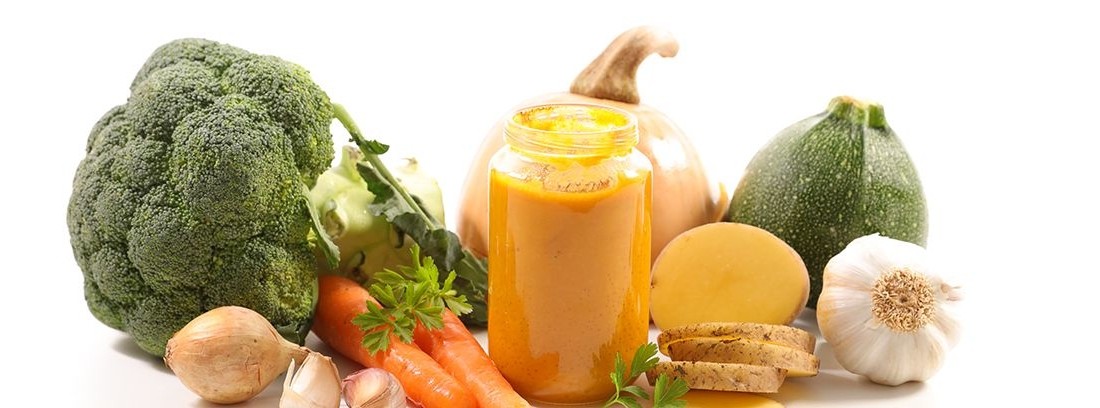Bland diet, what is it exactly?

What is known at the hospital level as bland diet it's not really a bland diet in the literal sense of the word. Is a easily digestible diet, suitable for recovering after a process in which the digestive system requires minimal effort to return to normal.
The soft diet avoids an excess of fiber and fat. It is a diet based on easy-to-digest cooking that includes refined cereals, vegetables that are not excessively fibrous, lean meats and white fish, etc.
Foods that we can take in a soft diet
Vegetables and greens
We will be able to take cooked vegetables that are not expressly excluded because they are more fibrous or that involve more digestive work. We can also take vegetable purees or vegetable broths. Well-cooked steamed green beans, pumpkin cream, vegetable broth, cooked zucchini, carrots are part of the soft diet ... And we can accompany them with boiled or steamed potatoes.
Fruit
Cooked fruits, and very ripe fruits that are not acidic, such as banana or pear, can be well tolerated in situations where we must give minimal work to the digestive system.
Cereals
We can take all kinds of white or refined cereals, rice, pasta, fresh or toasted white bread, semolina, refined dextrified cereals if necessary ... What we are going to avoid when preparing any of these foods is making them with a strong sauce, such as fried tomato sauces, milk creams, etc.
Vegetables
They have a large amount of fiber so they will not be the food of choice at first, but you can test the tolerance of a red lentil cream or a chickpea hummus, pea cream ... The crushed and passed through a Chinese strainer always they will be more easily digestible and, if we peel them previously, their tolerance is even more likely. It is advisable to start the intake with small amounts.
meats
White meats such as chicken, turkey and rabbit can be well tolerated, especially in mild cooking. You can start with preparations in which it is honeyed, such as steam or a mild stew with vegetables and later you can test your tolerance made in the oven or on the grill.
Fish
White fish such as hake, fresh cod, monkfish, etc., are steamed, boiled, or in mild vegetable stews, they will be well tolerated, and also if they are grilled or baked with little added oils. Later we can test the tolerance of semi-fatty fish such as sea bass or sea bream.
Eggs
The white is better tolerated than the yolk, so we will first test the tolerance of the white and then the yolk. If it is good, they can be eaten cooked or in a French omelette, without much added oil. But it is not going to be one of the foods that is offered in this type of diet, first we will start with softer foods such as white fish.
Dairy products
We will begin to assess tolerance with natural white yogurt, we can incorporate fresh cheeses, cottage cheese, milk and later soft cheeses in small quantities.
Fats
We can use small amounts of olive oil, or butter.
Drinks
The usual drink, as always, will be water, and we can also include infusions and broths in this type of diet. If vegetable drinks are chosen, they should be without sugar and preferably choosing rice, oatmeal, almond or soy.
Other products
Tofu and possibly seitan can be well tolerated.
Foods that we exclude from the soft diet
Vegetables and greens
We will avoid raw vegetables, in the form of salad, raw tomato, etc. And fibrous or flatulent vegetables such as leek, artichoke, eggplant, onion ... the cabbage family: Brussels sprouts, cauliflower, broccoli, cabbage ...
Fruit
We will avoid acidic fruits and, in general, all raw fruits that are not very ripe.
Cereals
In the soft diet, all kinds of whole grains and their derivatives and all pastry and pastry products are excluded.
Vegetables
We will avoid whole legumes because of their high amount of fiber.
meats
All sausages and cold cuts, red meat or fibrous pieces of meat are excluded from an easily digestible diet. And any fatty meat-based preparation.
Fish
Blue fish and shellfish are excluded from the soft diet.
Eggs
We will avoid fried eggs and scrambled eggs with a good amount of added oil.
Dairy products
We will avoid dairy desserts such as custards, puddings, etc. They are usually fatty and sugary. We will also avoid cured cheeses from the start, being able to incorporate them in a very small quantity once the tender and semi-cured are tolerated.
Fats
We will avoid bacon, butter, cream, milk cream and other very fatty products, fried, battered, fatty sauces, etc. Also chocolate.
Drinks
Those that can be irritating to the gastric mucosa are excluded from the diet, that is, all acidic juices, coffee, tea, carbonated drinks and, of course, alcoholic beverages.
Other products
We will avoid other products that are difficult to digest or irritate, such as smoked products, very spicy foods, pickles, products with vinegar, sweets, etc. Tobacco is also considered an irritant product.
You have doubts? , the platform MAPFRE digital health services that allows you to chat for free with a nutritionist to guide you on your diet. You can also buy one at the best price and with the best specialists.
What you should know:
- What is called a soft diet at the health level is not a diet indicated for people with dental problems but a diet that minimizes the work of the digestive system to digest it.
- The soft diet contains non-flatulent cooked vegetables, refined cereals, white meat and white fish, etc. All with gentle cooking.
- We must exclude from this type of diet fatty, acidic, highly seasoned foods, etc. For example, sausages, pastries, pickles, sour fruits, etc.
Bachelor of Food Science and Technology Diploma in Human Nutrition and Dietetics
(Updated at Apr 13 / 2024)